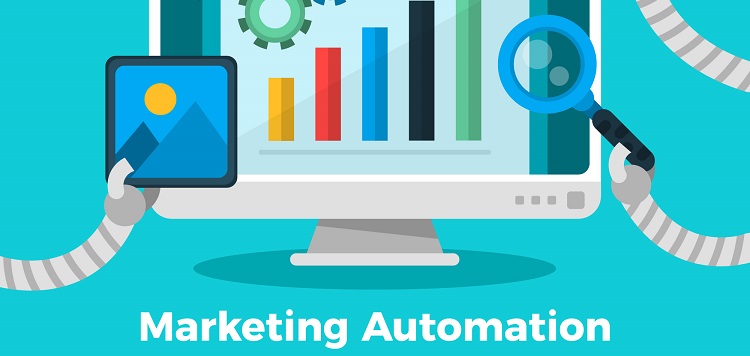In today’s digital world, businesses need to leverage marketing tools to stand out from their competition. Marketing tools such as marketing automation software, CRM systems, and social media management tools have become essential for businesses that want to improve the customer experience. This article will discuss the importance of marketing tools in boosting customer experience and company development.
The Importance of Generating Leads for Company Development
The development of any company begins with lead generation. Lead generation is the process of identifying potential customers who are interested in the products and services offered by a business. Marketing tools such as CRM systems, email marketing software, and social media management tools can help businesses generate leads by targeting a specific audience and providing customized messaging to increase engagement.
Benefits of Marketing Automation Software for Marketing Teams:
– Increased efficiency and productivity
– Improved targeting and segmentation
– Better lead nurturing and customer engagement
– Real-time data and analytics for more effective decision making
– Personalized customer experiences and messaging
– Marketing and sales alignment for more effective campaigns
– Cost savings through automation and streamlined processes
Marketing automation software relieves marketing personnel to focus on more important responsibilities and delivers greater results by automating tedious activities that they would otherwise have to complete. This software can assist businesses in tailoring their messaging to suit the audience and the communication method. By managing leads more efficiently and segmenting them based on their behavior, teams can refine their targeting and drive better value.
Customized customer experience facilitated by marketing automation
Marketing automation tools allow businesses to guide their customers along a personalized customer experience. The ability of marketing automation to personalize offers, segment customers, and track their behavior enables businesses to create a strong connection with their customers. The right set of triggers, workflows, and automation helps to build trust and foster loyalty among customers by delivering a tailored experience that meets their unique requirements.
Measurement of Campaigns and Customer Behavior using Marketing Automation Tools
Marketing automation tools represent the most effective way to measure campaigns and estimate customer behavior on a budget. These tools give real-time insights into customer behavior, purchase patterns, and engagement rates, providing companies with deeper insights into their customers. By analyzing the data captured, marketing teams can optimize their marketing efforts and campaigns to deliver maximum impact.
Advantages of using a Customer Relationship Management (CRM) system
A CRM system brings many benefits to businesses, including the ability to precisely segment customers, strategically plan sales activities, monitor sales, boost customer service, and streamline processes. The use of a CRM system can help businesses provide faster and more personalized service to their customers. By providing businesses with a 360-degree view of their customers, a CRM system can help them to identify valuable customers, analyze patterns, and offer optimized service accordingly.
The Necessity of Creating Engaging Content
Creating engaging content that strikes the right chords is necessary for businesses to build an authentic connection with their target audience. Content that is relevant and useful to the reader helps build trust and positions businesses as authorities in their respective fields. With the help of marketing tools such as content management systems, social media management tools, and email marketing software, businesses can create, optimize, and distribute engaging content that resonates with the audience and reaches them efficiently.
The Importance of Monitoring Marketing Efforts
All marketing efforts may go in vain if not monitored precisely. The use of marketing analytics software helps businesses track their marketing campaigns and provides them with insights into what is working and what is not. Monitoring marketing efforts can help identify areas where businesses can invest more resources to drive desired outcomes. By analyzing reports, businesses can tailor their marketing approaches to deliver greater impact and ROI.
Impact of platform design on its usage
The appearance of the platform affects the way you use it. It is important to select a marketing tool that is easy to use and integrates with your workflow seamlessly. Marketing tools should be simple and intuitive, have logical navigation, and clear actions to support user needs. User adoption is critical to achieve the full benefits of a marketing tool.
Considerations of Features and Pricing When Choosing a Marketing Tool
When choosing a marketing tool, businesses must consider the features and pricing associated with it. Some marketing tools are high-priced, while others are more affordable depending on their features. It is important to evaluate the required features and performance metrics and determine how they fit within a business’s budget constraints.
The Significance of Tracking and Reviewing Customer Behavior in the Buying Journey
Tracking and reviewing customer behavior across multiple touchpoints in their buying journey is crucial for businesses. With the help of customer analytics tools, businesses can gain insights into customer behavior, purchasing patterns, and preferences. Analyzing these reports can help businesses develop targeted marketing strategies that cater to customers’ needs and preferences.
In conclusion, marketing tools are critical for businesses that are serious about delivering an outstanding customer experience. By leveraging marketing automation software, CRM systems, analytics tools, and social media management tools, businesses can create a deep connection with their target audience and drive greater value. As marketing and customer experience continue to evolve, companies that invest in the right marketing tools will be well-positioned to succeed in the coming years.

